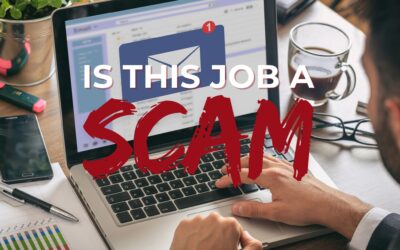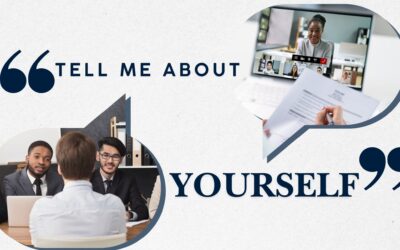“Tell Me About Yourself”
How to Nail the Most Common Interview Question
Most interviews begin with one deceptively simple question:
“Tell me about yourself.”
This question may sound casual, but it carries weight. How you answer sets the tone and heavily influences the hiring manager’s first impression—possibly determining whether you move forward in the process or get screened out entirely.
Rather than dreading this question, approach it as an opportunity. With preparation and practice, your response can become one of your strongest tools in landing the job.
In this article, we’ll cover:
-
What employers are really looking for in your answer
-
How to structure your response effectively
-
Strong follow-up strategies to stay memorable
What Employers Are Looking For
This isn’t a cue to recite your life story or walk through your resume line-by-line. Instead, hiring managers want a brief, confident overview of who you are, what you bring to the table, and why this role is the right next step.
In short: They’re listening for alignment.
They want to hear a clear, compelling narrative that makes it easy to picture you in the role—someone who not only has the right experience but is also energized by the opportunity.
How to Format Your Response
Your response should answer two key questions:
1. Who are you professionally, and where are you going?
Open with a high-level overview of your background—highlight your role, industry, and strengths. Then, bridge to the present: What are you looking for, and why does this role fit into your career path?
Example:
“I’m a project manager with eight years of experience leading cross-functional teams in the tech sector. I’ve consistently been drawn to roles where I can improve processes and drive results, and over time I’ve found that I thrive in fast-paced environments. I’m now looking to bring that experience into a role like this one, where innovation and collaboration are key.”
2. What have you accomplished that’s relevant to this role?
Choose one or two accomplishments that are tailored to the job you’re applying for. Focus on measurable impact. Did you increase revenue, streamline a system, or lead a major project? Show how your experience aligns with what they’re hiring for.
Be sure to touch on:
-
Challenges you’ve overcome
-
Projects you’ve completed
-
Lessons learned that directly apply to this opportunity
Key Tips for a Strong Response
-
Keep it to 90 seconds to 2 minutes. Be succinct but purposeful.
-
Avoid rambling. This is not the time to explain why you left previous jobs.
-
Be authentic and confident. Practice your answer until it sounds natural, not scripted.
-
Don’t over-embellish. Precision beats puffery.
Think of your response as the trailer to your professional movie—it should spark interest, not tell the whole story.
Follow-Up: How to Stay Engaged and Stand Out
Once you’ve nailed your opening response, keep the momentum going:
-
Keep the focus on them. Throughout the interview, tailor your answers to what the employer needs—not just what you’ve done.
-
Ask clarifying questions. If a question feels vague, it’s okay to ask for clarification.
-
Bring thoughtful questions. Prepare 2–3 questions that help uncover the role’s priorities or the team’s biggest challenges.
-
End strong. If you aren’t invited to ask questions, say:
“Would it be okay if I asked a couple of questions to better understand the role?”
Above all, remember this: The interview is not an interrogation—it’s a conversation. You’re auditioning for a part, yes—but also determining if this role aligns with your goals and values.
Final Thought
Authenticity and relevance are more important than ever. Hiring managers are looking for more than qualifications—they’re seeking fit, enthusiasm, and clarity. A well-prepared response to “Tell me about yourself” can be the key that unlocks the rest of the conversation.
Have other tough interview questions you’re struggling with? We’re here to help—contact us today for personalized coaching and support.




